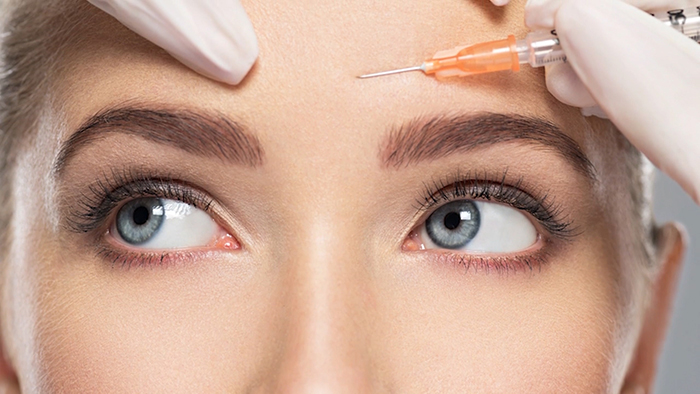Depression is a serious health concern that affects over 16 million adults in the United States alone. For some, it may be seasonal or temporary due to extra-ordinary life events. Unfortunately for others, depression is a life-long struggle.
While there are medications to help mitigate the symptoms, they don’t work for everyone and many have negative side effects. Interestingly, there is a new treatment option for anxiety and depression utilizing a well-known albeit very different product— Botox. The product itself isn’t actually fixing the symptoms of depression and anxiety, but its cosmetic effects may be giving a psychological boost that makes a significant difference.
Board certified plastic surgeons Dr. Christine Hamori of Boston, MA and Dr. Johnny Franco of Austin, TX discuss how they use Botox to help patients not only look better, but feel happier, calmer and more able to take on the world.
Depression is a Serious Problem
Everyone experiences sadness at some point in life. It’s a normal emotion that comes and goes with the ups and down of life. Depression, on the other hand, is a deeper, more sinister beast. People with depression or a depressive disorder, such as Bipolar disorder, suffer from an overwhelming sadness that never seems to go away. People with depression often experience:
- loss of appetite
- sluggish, low energy
- decrease or lack of interest in things that used to bring pleasure
The culmination of these symptoms makes depression ever worse as the affected is even less capable of achieving things that may instill positive emotion. The overwhelming “tailspin” severe depression patients suffer is extremely hard to pull out of. There are medications to treat the symptoms, but they don’t work for all patients and many have nasty side effects that can make them undesirable. This is why doctors are always looking for new and different ways to treat depression.
An Alternative and Creative Depression Treatment: Botox
There have been a number of recent studies looking at whether or not Botox injections can help a patient feel less depressed and/or reduce anxiety. What they’ve found, says Dr. Hamori, is “Botox helps treat depression, because what happens is that if you can’t make a worried, sad face, your brain actually thinks that it’s not worried, upset or sad.” While it may seem kind of silly, there is a direct connection between the emotions expressed by your facial muscles and your brain.
In one study where patients were treated with Botox just in the frown lines between the eyebrows (the “11” lines), there was a 47.1% decrease in depression symptoms in those that received the Botox versus those that received the placebo. Dr. Hamori has seen it first hand with her older patients. Once a person hits his or her late 70’s or beyond, Botox won’t make a huge dent in the appearance of their wrinkles. That said, she has noticed that when she uses a bit on these older patients, they are in a better mood.
How Botox Works
Botox, Dysport, Xeomin, and the new Jeuveau are all brand names for a toxin produced by the bacterium Clostridium botulinum. Each has slight differences, but all work by blocking signals from your nerves to your muscles. During a Botox procedure, the injector will strategically place Botox into the dynamic muscles of the face. These are the muscles that make your face expressive and that overtime create increasingly noticeable wrinkles. The toxin temporarily “freezes” the underlying muscles, causing your surface wrinkles to relax and soften. As discussed, limiting your body’s ability to frown or look worried tells your brain that you are not actually sad nor worried. This little tiny boost can potentially be rewarded with huge psychological gains.
Just like humans who live in gloomy environments tend to be gloomier than those who live in the sun, those who look young and refreshed in the mirror tend to be happier in general. When using Botox, the end result is both smoother, younger-looking skin and a happier, now calmer disposition.
Botox for Anxiety
Similarly for the younger sibling of depression, anxiety, Botox injections can help people be more confident and thus less likely to be anxious. Even more physical, Botox has been proven to temporarily eliminate over-sweating, a condition that causes great unease and anxiety. Dr. Franco has first hand knowledge of how using Botox to treat the symptoms of over-sweating can actually help to dispel the anxiety. “When I first got into practice, and I was about to do a procedure or talk to patients, I would get a little sweaty,” he shares. This obvious sign of his nerves would then make him more nervous – a self-perpetuating cycle. He started to use Botox to diminish his body’s ability to sweat and this, in turn, helped to stop that sensation of “rolling down the hill where you get yourself really worked up.” He has noticed a definite benefit for both himself and his patients.
Botox isn’t the Answer, just One Answer
Depression and anxiety are complicated conditions because the variables that constitute them are extremely varied. Unlike something like the flu, a cold, or even cancer, depression and anxiety symptoms and causes are wildly different from patient to patient. While for one patient they may be derived from physical characteristics of their brain, others may experience the conditions from psychological trauma based on a series of unfortunate events from long ago. We just don’t know enough to solve all of the possible scenarios stemming from both environmental and genetic possibilities.
That said, if there’s something that works, there’s no reason not to try it. Botox certainly isn’t the cure all for depression and anxiety – this is nobody’s claim. However, there is legitimate science that says how we view ourselves in the mirror has a significant impact on our general psychological state. If the pharmaceutical route isn’t working, depression and anxiety patients may want to try calming their wrinkles to see if it provides a larger, deeper calm to their lives.










Facebook
Twitter
Instagram
YouTube
RSS